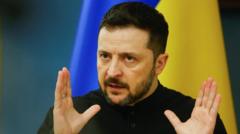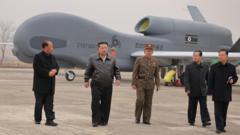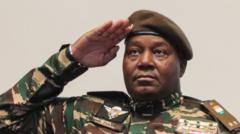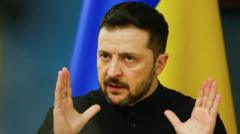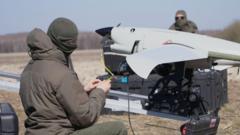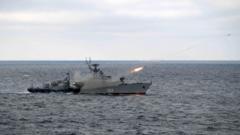The H.R. Smith Group, a significant donor to Nigel Farage's Reform U.K. party, reportedly sold almost $2 million worth of sensitive technology to an Indian company that supplies Russia's state weapons agency. The company defends its actions, claiming the sales were lawful and meant for humanitarian purposes.
Controversial Arms Trade Ties Resurface Amid U.K. Political Donations

Controversial Arms Trade Ties Resurface Amid U.K. Political Donations
A corporate donor to the populist Reform U.K. party has drawn scrutiny after allegedly selling equipment to a supplier linked to Russia's military.
The ties between politics and arms trade are under the spotlight as a major donor to the populist Reform U.K. party faces allegations concerning transactions with a Russian military supplier. H.R. Smith Group, an aerospace manufacturer, has been linked to sales of nearly $2 million worth of equipment to an Indian firm that serves as the primary trading partner of Russia's blacklisted state arms agency, Rosoboronexport.
This revelation emerges as the company donated 100,000 pounds (approximately $130,000) to Reform U.K., led by Nigel Farage, just days after he took the helm. Richard Smith, who runs H.R. Smith Group, holds a key position in Britain's political landscape, owning a Westminster property associated with influential right-wing lobbying groups.
In a statement defending its actions, H.R. Smith Group asserts that the sold equipment, which includes transmitters and cockpit gear, is intended for an Indian search-and-rescue network, emphasizing that it supports lifesaving operations and is not military-grade. However, records indicate that some products shipped to the Indian company were allegedly forwarded to Russia soon after their arrival, raising eyebrows regarding the potential impact of these transactions.
While there is no definitive proof that H.R. Smith's products were deployed in Russia, the timeline of these shipments has prompted a broader discussion on the implications of corporate donations in politics and the arms trade's role in contemporary geopolitical conflicts. As the situation unfolds, the relationship between political financing, military supplies, and international diplomacy continues to provoke debate across various sectors of society.









